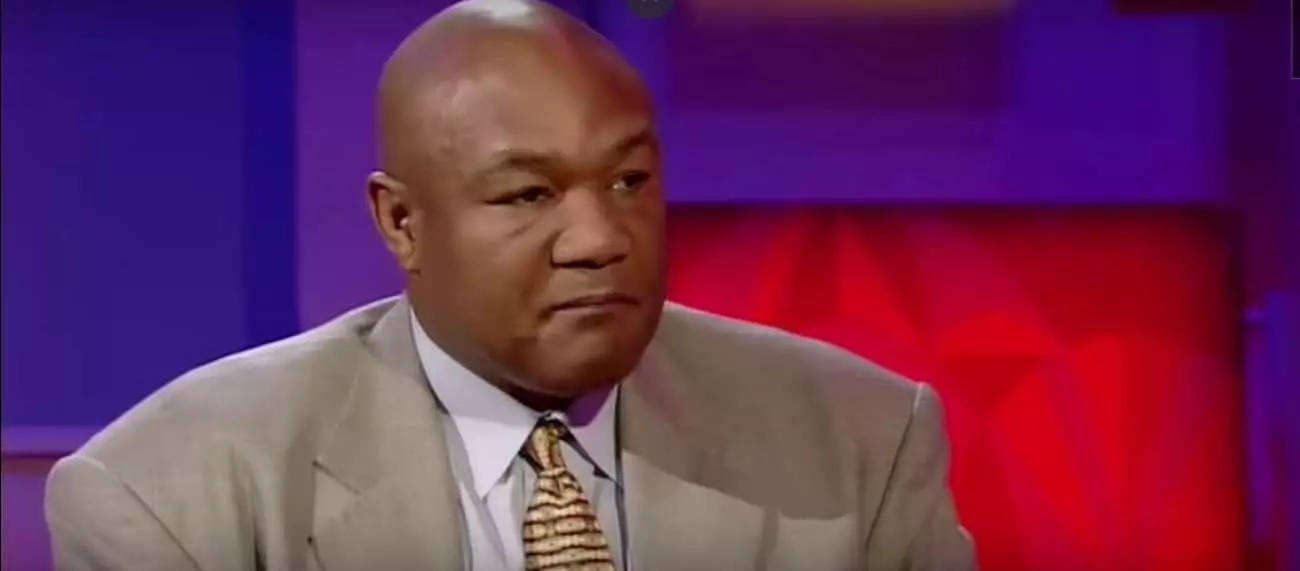George Foreman’s life story is a testament to resilience and transformation. Born in Marshall, Texas, 76 years ago, Foreman emerged from a background that many would consider challenging. As a teenager, he found himself at a crossroads, battling a chaotic lifestyle characterized by poor choices and a lack of direction. However, as fate would have it, he stumbled upon the Job Corps program initiated by President Lyndon Johnson, designed to provide opportunities for underprivileged youth. This pivotal moment marked the beginning of a new chapter for Foreman.
Seeking to shed some excess weight, he ventured into a local boxing gym, which would eventually become his sanctuary. It was there that he caught the attention of trainer Doc Broadus, who recognized the raw potential in this tumultuous youth. Little did anyone know at that point that this chance encounter would pave the way for one of the most storied careers in sports history.
Foreman’s introduction to boxing in 1967 led to an astonishingly swift rise within the sport. Although his amateur record stood at a modest 16 wins and 4 losses, the turning point came with his participation in the 1968 Olympic Games in Mexico. In a remarkable feat, George clinched a gold medal, solidifying his place in boxing history. The defining moment of these games was more than just his victory; it was the symbolism of pride he displayed. While other athletes made powerful political statements, Foreman’s waving of a small American flag underscored his unique approach to nationalism and personal expression.
As a newly crowned Olympic champion, Foreman transitioned to the professional boxing world with high expectations. Initial bouts were carefully orchestrated to build his reputation and skills, but it wasn’t long before he found himself in the ring with some of the sport’s biggest names.
The moment that solidified Foreman’s status in the professional boxing arena came in January 1973 when he faced off against Joe Frazier. In a legendary bout, Foreman overwhelmed the formidable opponent, finishing the match in less than two rounds. This definitive victory showcased not just his physical prowess but also positioned him as a formidable force in heavyweight boxing.
Yet, with great success came significant challenges. Following the high of his triumph over Frazier, Foreman encountered the inimitable Muhammad Ali in a bout dubbed “The Rumble in the Jungle” in 1974. What began as a promising reign led to a crushing defeat, leaving Foreman physically and mentally shaken. Nevertheless, this was merely a chapter in his story; the next phase of his career would be as tumultuous as the last.
After his loss to Ali, Foreman retreated from the ring for nearly a decade, a decision fueled partly by disillusionment and partly by a quest for inner peace. During this hiatus, he pondered his identity beyond boxing, even seeking solace through spirituality. Ultimately, it was a renewed sense of purpose—wanting to provide for a community center he believed in—that drove George back into the sport in 1987.
His return was nothing short of miraculous. Despite criticisms regarding his age and physique—he had gained considerable weight—Foreman trained rigorously, applying life lessons learned in the interim. Guided by veteran trainers like Charlie Shipes and Archie Moore, he underwent a transformation that many deemed impossible for a fighter of his age.
The comeback culminated in an extraordinary moment: Foreman’s victory against Michael Moorer in 1994, capturing the heavyweight title once again. This triumph was symbolic, illustrating that not only could he reclaim his past glory, but he could also redefine it on his terms. The significance of this victory reverberated beyond the sport, marking the end of one era and the commencement of another.
With lucrative endorsements, particularly from his iconic line of kitchen grills, Foreman transitioned seamlessly into a global icon, amassing wealth and altering public perceptions. The image of Foreman transformed from a fierce boxing champ to a relatable figure, often showcased in family-oriented marketing campaigns.
Today, as George Foreman celebrates his 76th birthday, he stands as a multifaceted icon, beloved across various demographics. His influence extends beyond boxing, marking him as a cultural symbol of resilience, reinvention, and entrepreneurship. With each phase of his life, from a troubled youth to an Olympic champion, from a world heavyweight champion to a successful entrepreneur, Foreman’s journey is a masterclass in embracing change and inspiring others.
George Foreman is not just a boxing legend; he is a living embodiment of the American dream—a global treasure who continues to motivate countless individuals with his remarkable story.


Napsat komentář